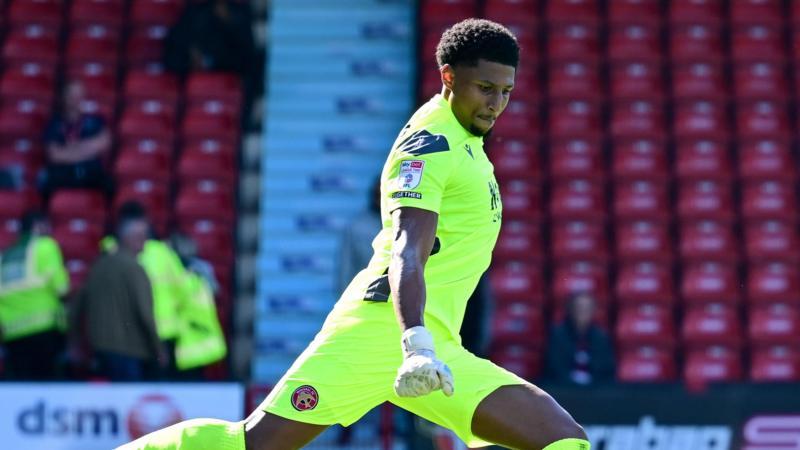Outrage as Fan Hurls Object at Goalkeeper During Game



In a recent incident during a football match between Swindon Town and Walsall, a disheartening event took place that has since drawn criticism from various quarters of the sporting world. Ian Holloway, Swindon's manager, publicly addressed the actions of a Swindon fan who threw an object at Walsall's goalkeeper, Myles Roberts, stating that the individual involved should feel "ashamed" of their actions.
The incident unfolded during a crucial moment in the match, underlining not just the intensity of league games but also the passions they ignite among fans. However, this time, the fervor crossed the bounds of healthy sporting spirit. Roberts was fortunately unharmed, but the event momentarily disrupted the game and certainly disconcerted the young goalkeeper.
Ian Holloway, known for his forthright views and extensive experience in football management, was unequivocal in his condemnation of the fan’s behavior. During his post-match interview, Holloway expressed his disappointment and embarrassment over the incident, emphasizing that such actions tarnish the image of football and reflect poorly on the club as a whole. His response not only sets a disciplinary tone but also reflects a broader commitment needed from clubs and their management to root out malpractices by spectators.
Incidents like these spotlight the ongoing challenges football clubs face in managing crowd behavior. Despite numerous measures like increased stadium security, surveillance, and strict bans on violators, managing thousands of passionate fans can prove complex. The prevalence of such negative behavior poses questions about the efficacy of existing controls and the need for innovative solutions to fan management and stadium security.
Moreover, the incident could prompt discussions around broader educational campaigns targeting fans about the consequences of such outbursts and the critical importance of sportsmanship. Football is a game deeply rooted in community values, and incidents like this serve as a harsh reminder of the responsibilities fans hold in upholding these values.
Swindon Town will likely revisit their spectator management policies in light of this incident. The game, which should be remembered for the skill and competition on display, now also carries this unfortunate event in its narrative. It also narrows down to individual accountability and the reminder that actions of single individuals can significantly impact the broader community involved - from players to fellow fans and the general perception of the sport.
From a broader lens, Holloway's open criticism of the offending fan is not merely about addressing a single act of indiscretion but is also about setting a precedent. In sports, particularly in leagues as competitive and as closely followed as football in England, the behavior of fans often comes under as much scrutiny as that of the players on the pitch. How clubs and their management respond to such issues sets the tone for future interactions and lays down a marker for what is considered acceptable behavior.
The football association, along with Swindon Town and Walsall, will likely keep a close watch on developments. The response from the community and the authorities in the coming days will be crucial in ensuring such incidents are not repeated. Education, coupled with stricter enforcement of conduct policies, might be on the agenda as clubs across the country reflect on this incident.
In conclusion, while leagues like these thrive on the enthusiasm and support of their fans, maintaining a balance between passion for the game and respect for all participants is essential. It is a collective responsibility, one that involves the clubs, the players, and the fans themselves. Ian Holloway's call for reflection and responsibility is not just about preserving the sport’s integrity but is also a call for a more respectful, enjoyable football culture that all can appreciate.